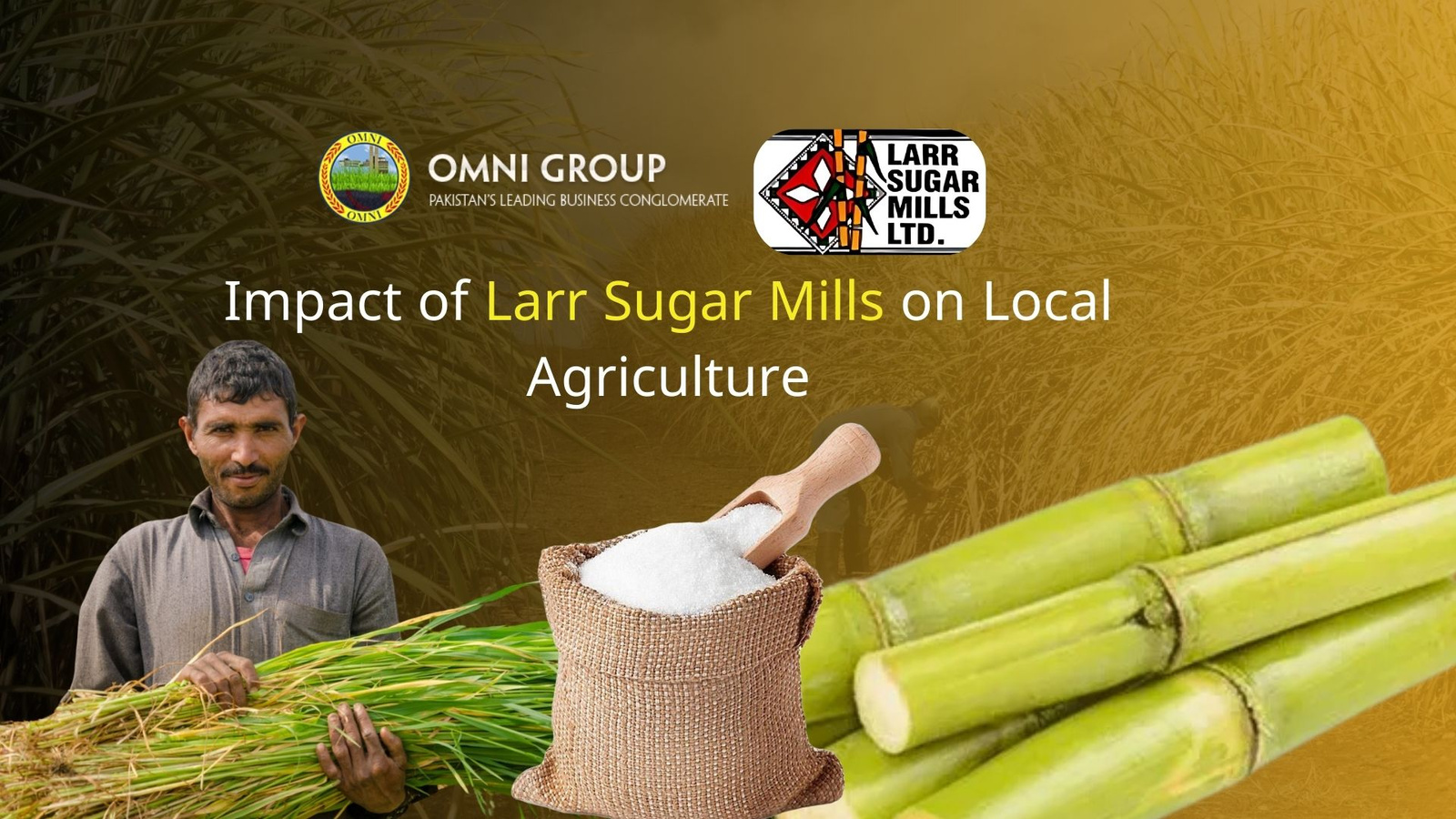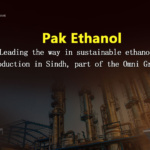Larr Sugar Mills, acquired by the Omni Group in 2014, resumed operations in Deh Kinjir, Sindh.
Larr Sugar Mills, a prominent name in the sugar manufacturing industry, operates under the ownership of the Omni Group. The company, located in Deh Kinjir, TAPO Valhar, Taluka Sujawal, District Thatta, Sindh, commenced its operations in 2014. This followed its acquisition by the Omni Group via an official tender process conducted by the Sindh High Court. The mill had previously operated until the 2010-2011 crushing season before undergoing restructuring
Larr Sugar Mills, before its acquisition, had ceased operations post the 2010-2011 crushing season. Recognizing its potential, the Omni Group stepped in and acquired the mill in 2014. The acquisition marked a significant step for the Omni Group, showcasing their strategic expansion into the sugar industry through judicial and formal channels.
Economic Benefits

Employment and Income Generation:
- Job Creation: Larr Sugar Mills has emerged as a critical employer for the local populace, generating employment for thousands of individuals both directly at the mill and indirectly through related sectors.
- Economic Stability: The mill’s operations contribute significantly to the region’s economic stability, providing a dependable income source for numerous families.
- Market for Farmers: Local farmers benefit from a reliable market for their sugarcane, ensuring consistent income and enhancing their financial security.
- Improved Living Standards: The economic upliftment driven by the mill has led to better living standards and financial well-being for many regional households.
Infrastructure Development

- Enhanced Infrastructure: The establishment of Larr Sugar Mills has catalyzed infrastructure improvements in the surrounding areas.
- Roads and Connectivity: Enhanced road networks and better connectivity have been pivotal in transforming the agricultural landscape.
- Irrigation Facilities: Improved irrigation systems have supported agricultural activities.
- Market Access: These infrastructure advancements have facilitated easier transportation of produce, reduced post-harvest losses, and improved market access for farmers.
Changes in Crop Patterns

Shift to Sugarcane Cultivation:
- Notable Crop Shift: The presence of Larr Sugar Mills has driven a significant shift in crop patterns, with many farmers switching to sugarcane cultivation.
- Assured Market: This shift is largely due to the assured market and favorable pricing policies the mill offers.
Environmental Impact

Water Usage and Management
- Efficient Water Use: The mill promotes efficient water use practices to support sugarcane cultivation.
- Irrigation Innovations: Adoption of innovative irrigation techniques has helped optimize water usage for agricultural purposes.
- Sustainable Practices: Sustainable water management practices are being encouraged to ensure long-term availability of water resources.
Soil Health and Fertility
- Improved Soil Management: Efforts are being made to promote sustainable farming practices that enhance soil health.
- Soil Conservation: Initiatives to conserve soil and improve its fertility are in place, ensuring long-term agricultural productivity.
- Eco-friendly Farming: The use of eco-friendly farming techniques helps maintain soil quality and reduce environmental impact.
Socio-Cultural Impact
Changes in Farming Practices and Community Dynamics
- Modern Techniques: The advent of Larr Sugar Mills has brought about positive changes in farming practices, with many farmers adopting mechanization and modern agricultural techniques.
- Increased Productivity: These changes have led to increased productivity and efficiency in farming.
- Community Growth: The community has grown and adapted to new agricultural practices, fostering a sense of progress and development.
Impact on Local Culture and Traditions
- Economic Prosperity: The economic prosperity brought by the mill has positively influenced local culture and traditions.
- Enhanced Social Events: Festivals, social gatherings, and other cultural events have flourished, reflecting the new economic realities.
- Cultural Preservation: While embracing modern influences, efforts are made to preserve and reinforce local traditions and cultural heritage.
Opportunities and Strategies

Promoting Sustainable Practices
- Sustainability Initiatives: Promoting sustainable agricultural practices is essential to ensure long-term benefits.
- Crop Rotation: Encouraging crop rotation helps maintain soil health and agricultural diversity.
- Integrated Pest Management: Adopting integrated pest management techniques reduces the need for chemical pesticides, supporting environmental sustainability.
- Organic Farming: Promoting organic farming practices mitigates adverse effects on soil and the environment.
Water Conservation Measures
- Conservation Techniques: Implementing water conservation measures ensures sustainable water use.
- Drip Irrigation: Techniques such as drip irrigation significantly reduce water usage and enhance efficiency.
- Rainwater Harvesting: Rainwater harvesting helps augment local water supplies and supports agricultural needs.
- Efficient Water Management: Developing efficient water management systems ensures the optimal use of water resources.
Community Engagement and Support

- Community Involvement: Engaging with the local community to understand their needs and concerns fosters a cooperative environment.
- Training and Support: Providing training and support for alternative livelihoods helps diversify income sources and ensures economic resilience.
- Encouraging Diversified Farming: Promoting diversified farming practices reduces dependency on a single crop and enhances agricultural sustainability.
- Cultural Preservation: Efforts to preserve local traditions balance economic growth with cultural heritage.
- Significant Role: Larr Sugar Mills has played a significant role in shaping the local agricultural landscape.
- Economic Benefits: The mill has brought considerable economic benefits and infrastructure improvements to the region.
- Positive Impact: Through sustainable practices and community engagement, the mill has fostered long-term viability and prosperity.
- Balanced Approach: The story of Larr Sugar Mills highlights the importance of a balanced approach to industrial development and agricultural sustainability, ensuring progress and well-being for the community.



